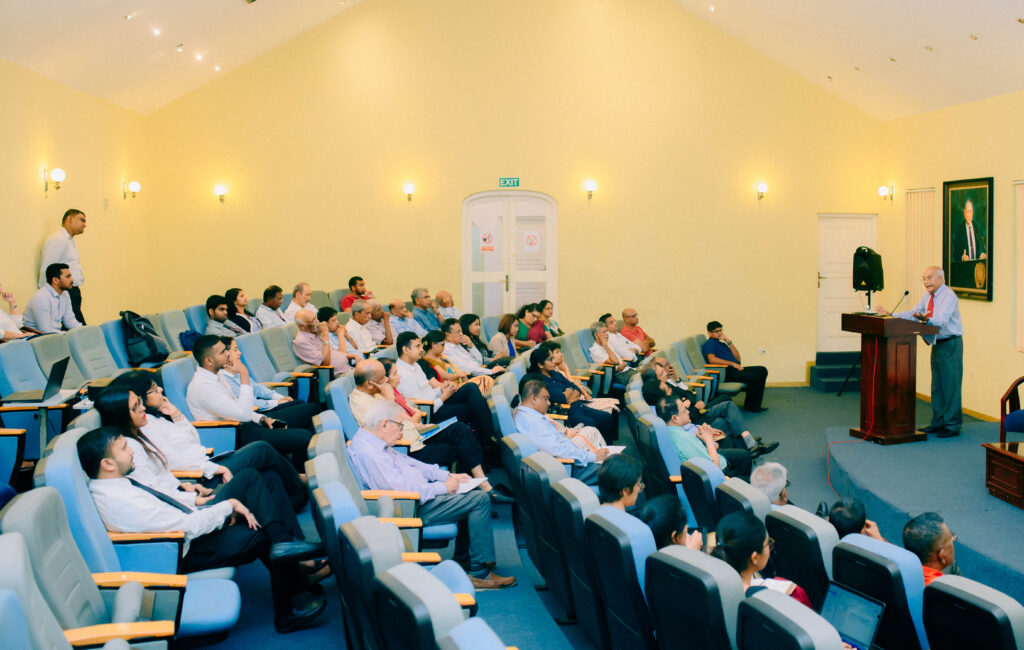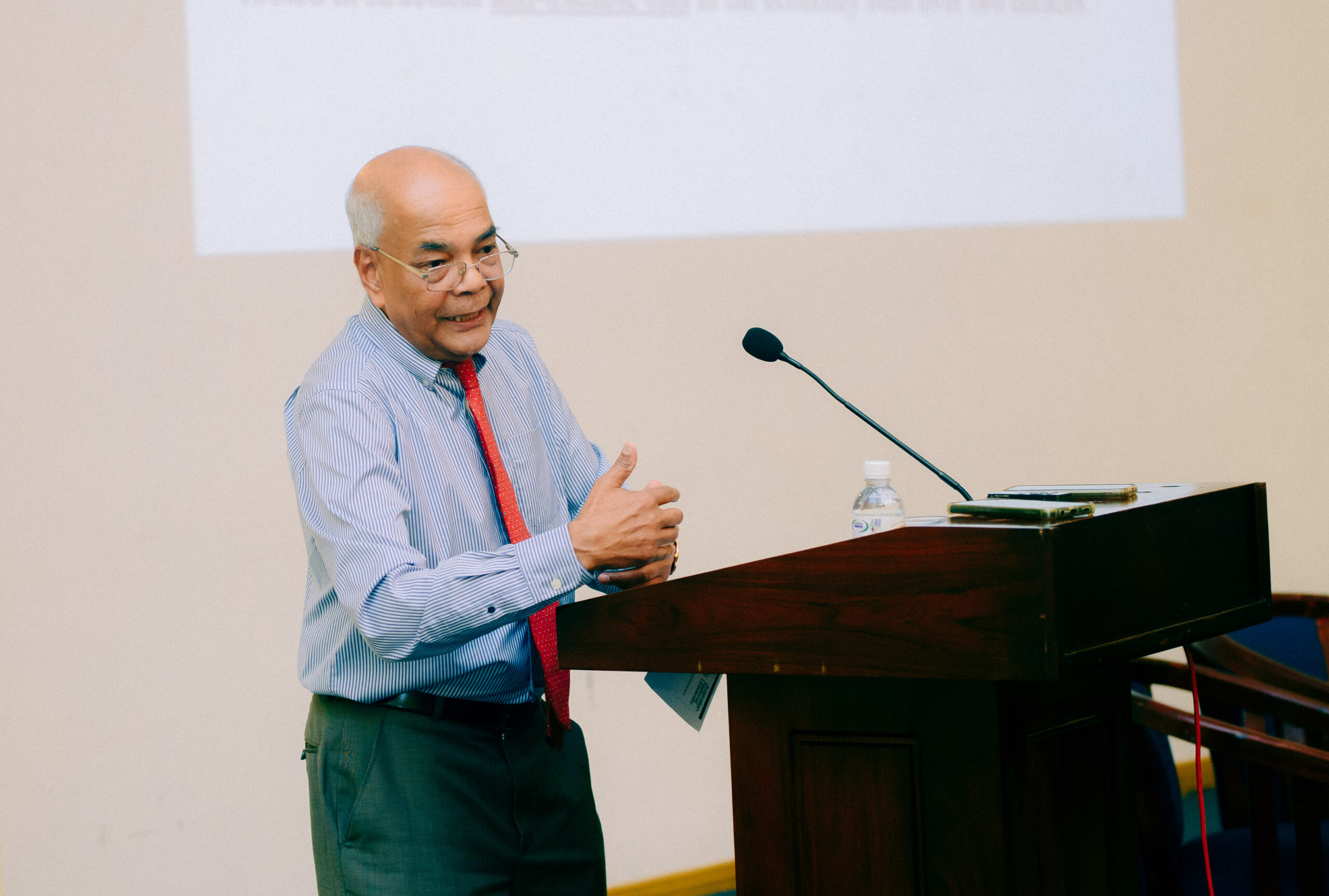
GCF Hosts Guest Lecture on Sri Lanka’s Debt Crisis and Recovery
The Gamani Corea Foundation hosted a guest lecture on the theme, “Debt Overhang, Adjustment, and Recovery: Sri Lanka’s Prospects for Growth and Development.” at the Lighthouse Auditorium on October 16, 2024. The lecture was delivered by Prof. Premachandra Athukorala, Emeritus Professor of Economics at the Australian National University.
At the outset, Prof. Athukorala highlighted that Sri Lanka’s economic growth has been sporadic over the past seven decades, with recurring macroeconomic crises that have led the country to seek IMF assistance 17 times. He emphasized that the current crisis is not merely a liquidity problem but a deeper solvency issue, driven by a substantial debt overhang. Over the last two decades, Sri Lanka’s production structure has shifted predominantly toward non-tradable sector, which now accounts for over 70% of GDP—a structural imbalance that undermines economic resilience.
Prof. Athukorala attributed the sovereign debt crisis to two core factors: vulnerability and trigger. Vulnerability arises from an unsustainable economic structure, while a trigger is an external shock, such as a pandemic or poor economic policy, that pushes the vulnerable situation into a crisis. He noted that although many Asian countries were affected by COVID-19, only Sri Lanka defaulted on its debt due to its deep-seated economic vulnerabilities, which have worsened over time. He argued that, in the post-conflict era, debt-driven growth in non-tradable sector eroded Sri Lanka’s repayment capacity, leading to a severe debt overhang, high debt servicing costs, and a depletion of foreign exchange reserves.
According to IMF estimates, Sri Lanka’s debt-to-GDP ratio is projected to reach 107%, with foreign debt expected to hit $67 billion by the end of the IMF program in 2027. This figure assumes a significant debt relief component, which might not materialize.
Sri Lanka faces a dual challenge of generating fiscal revenue (payment problem) and accessing foreign currency (transfer problem) for debt repayment. The country’s lack of international economic sovereignty means its debt is denominated in foreign currency, which complicates recovery efforts. He emphasized that addressing the budget deficit alone will not resolve the current account deficit without structural adjustments alongside the IMF program.

Prof. Athukorala explained that Sri Lanka’s debt accumulation involved two significant shifts: from bilateral donors to sovereign bonds and from traditional donors like Japan to higher-interest Chinese loans. He proposed using debt-to-export and debt-to-tradable GDP ratios to gauge the country’s repayment capacity, both of which have placed Sri Lanka among the highest-risk nations globally.

To regain debt repayment capacity, Prof. Athukorala recommended focusing on expanding exports and attracting Foreign Direct Investment (FDI). While the export-to-GDP ratio rose to around 30% during the post-war period, it has since dropped to about 15%, indicating a decline in the economy’s tradable sector and debt-servicing potential. This was compounded by policy missteps, including an exchange rate policy that favored a quasi-fixed nominal rate amid inflation, eroding the tradeable sector’s profitability. Additionally, high import tariffs—an implicit tax on exports—and a decline in FDI compounded these challenges. Policies such as the Strategic Development Project Act of 2008 deterred FDI, and the absence of an effective investment promotion strategy further tarnished Sri Lanka’s image as an attractive FDI destination.
Prof. Athukorala stressed the importance of a private-sector surplus to offset fiscal deficits, as seen in countries like Thailand, and recommended well-targeted foreign aid. He urged a transformative shift in Sri Lanka’s production structure, from non-tradable to tradable sector, to enable sustainable growth. While the IMF’s Extended Fund Facility (EFF) program addresses economic stabilization, debt sustainability, and access to capital markets, he argued that it must be supplemented with robust policy reforms aimed at structural rebalancing.
This lecture not only provided an in-depth analysis of Sri Lanka’s economic challenges but also highlighted the importance of long-term structural reforms to ensure recovery and sustained development.
Book Launch
The launch of the Book ‘Catalyzing Good Governance Through National Media’ by Shiranee Dissanayake will take place at the Lighthouse Auditorium. 24, Horton Place Colombo 7 on 7th November 2024.
Nirma Shamila Joseph, from the Central Province, is our feature for the month, for the Freda Corea Awards 2024.
